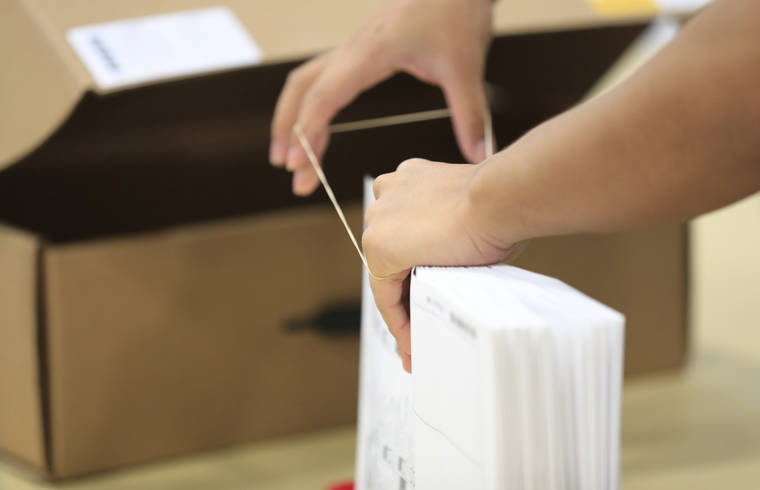The state Legislature is advancing two bills that would allow some 17-year-olds to vote by next year’s primary election.
Under the current law, 16-year-olds are allowed to preregister Opens in a new tab, but they have to wait until they actually turn 18 to vote.
But Senate Bill 550 Opens in a new tab and 551 Opens in a new tab, introduced by Sen. Les Ihara Jr. (D, Moiliili-Kaimuki-Palolo), would make constitutional amendments that would allow 17-year-olds in to vote in the primary election only if that person’s 18th birthday falls between next year’s primary election on Aug. 13 and general election on Nov. 8.
The bills passed the House Government Reform Committee on Wednesday. The bills also have one more House committee to clear before they are presented before the full House.
Next year’s elections will be for the governor, lieutenant governor and the Office of Hawaiian Affairs race.
Hawaii is virtually a one-party state controlled by Democrats, so key candidates are chosen in the primary elections.
“The fairness issue is by the time they get to vote in the general elections, the major choices were already made from the primary elections,” Ihara said in an interview.
Sen. Karl Rhoads (D, Downtown-Nuuanu-Liliha), chairman of the Judiciary Committee, had suggested amendments at a February hearing on the bills that will allow 17-year-olds to vote in the primary elections for all election races, including special elections.
“In regards to the federal elections, some states already do this, so it’s a little cutting-edge,” Rhoads said the hearing. “But it looks like it can be done.”
So far, 19 other states allow 17-year-olds to vote in primary elections. Opens in a new tab
Earlier this legislative session, similar bills were introduced by the Keiki Caucus to bring the voting age down to 16 from 18. However, the measures failed to gain traction.
Dyson Chee, an 18-year-old Kapiolani Community College student, said he’s in support of the measures. However, he hopes there will be future amendments to drop the voting age to 16 instead, saying countries like Austria “improved their democratic process” by lowering their voting age to 16.
“We really appreciate the efforts in generating a conversation around lowering the voting age,” Chee said. “But it’s like trying to catch a fish with half a net. It’s not really that effective.”
Chee said in his written testimony that high schoolers should be given a chance to vote before they graduate.
Moanalua High School student Nikkya Taliaferro, 17, is hopeful that the measures will become law. She said she sees people her age and younger engaged in activism and politics. She’s keeping an eye on measures that relate to climate change, vaping, police reform and lowering the voting age.
“I believe that a lot of the times, especially seeing the youth go out and protest and doing all of these marches, we’re seeing that youth are involved in the news and they are involved in politics.”
Most of the written testimonies showed support for the bills, but there were opponents who want the voting age to remain the same. One testifier wanted the voting age to increase to 21, with no explanation.
“No, they can wait until they turn 18 like the rest of us did,” Dara Carline said in written testimony in opposition.

